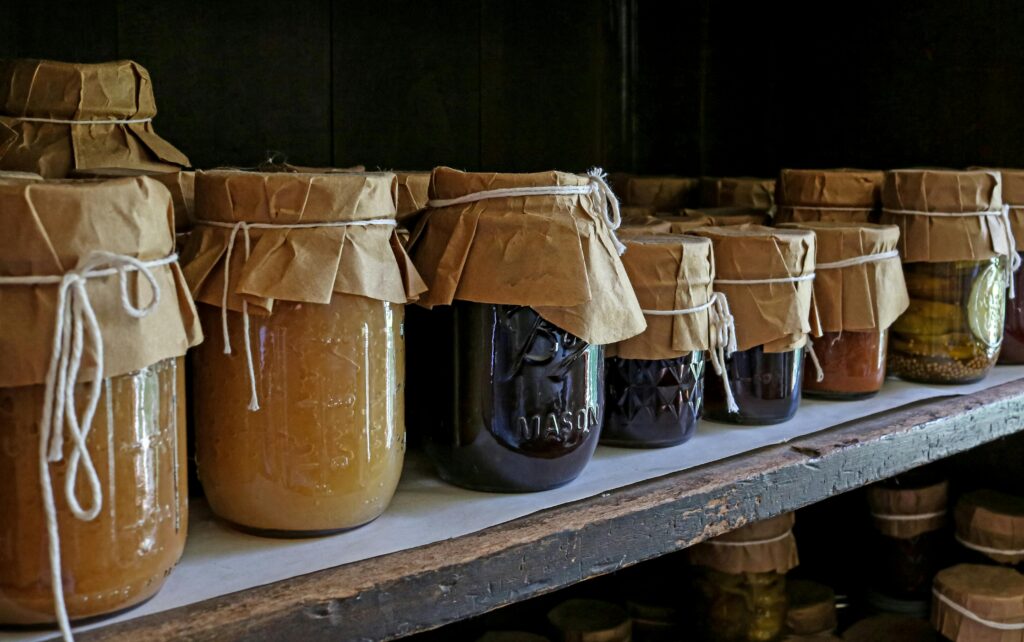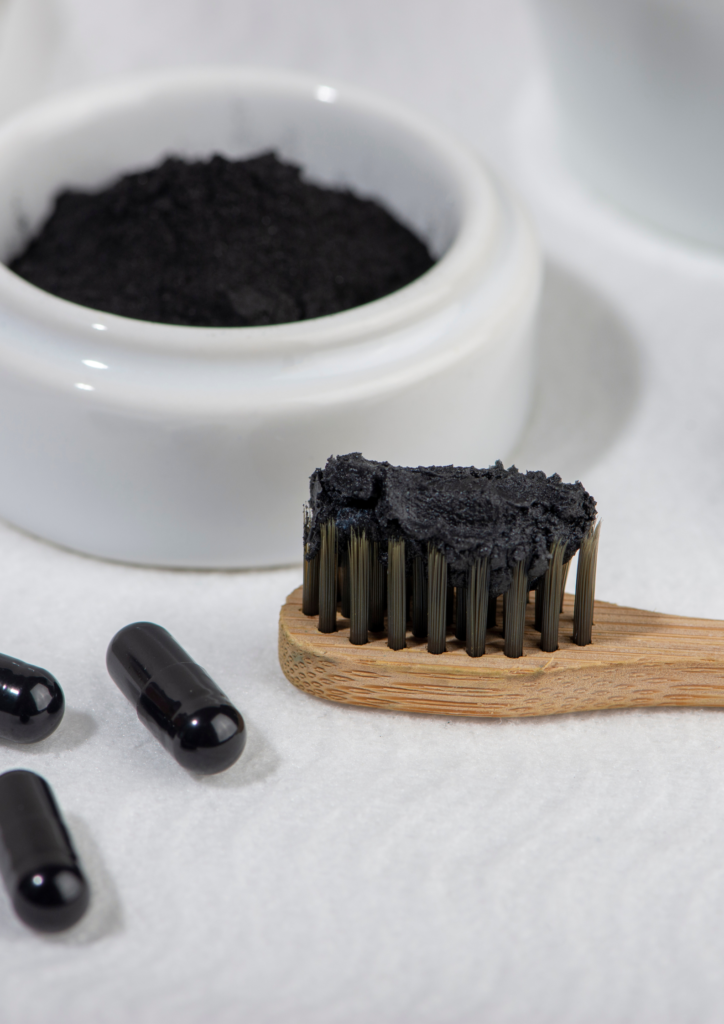Natural Ways to Support Your Digestive System & Gut Health
The digestive system is essential for our overall health and well-being. As we age, natural cycles can slow down, affecting gut health. Good gut health reduces inflammation and boosts immunity. Key factors include stomach acid, gut immunity, and the gut microbiome.
This article delves into natural methods to enhance digestive health. We’ll explore dietary changes, lifestyle adjustments, and proven strategies for wellness and vitality.

Key Takeaways
- Gut health is crucial for overall well-being and can be supported through natural means
- The digestive system and gut microbiome play a vital role in various bodily functions
- Dietary choices, lifestyle factors, and natural remedies can positively impact gut health
- Increasing fiber intake, consuming fermented foods, and managing stress are important for gut health
- Adopting a holistic approach to gut health can lead to improved digestion, immunity, and overall wellness
Understanding the Digestive System and Gut Microbiome

The gut microbiome is a complex ecosystem of trillions of bacteria, viruses, and fungi within our digestive system. This diverse community of gut flora is vital for our health, influencing immunity, inflammation, and bodily functions. Maintaining a healthy gut microbiome is crucial for optimal digestive health as we age.
The Role of Gut Flora in Overall Health
Research indicates that our gut microbiome’s composition significantly impacts our health. A balanced gut microbiome supports the immune system, regulates inflammation, and aids in nutrient absorption. On the other hand, an imbalance or dysbiosis in gut flora can lead to infections, inflammatory bowel diseases, and cardiovascular problems.
How Digestive Health Affects Your Body
The health of our gut microbiome is closely tied to our overall well-being. An imbalanced gut can impair nutrient absorption, blood sugar regulation, and fat storage. This can result in weight gain, diabetes, and chronic fatigue. Additionally, gut dysbiosis is linked to skin conditions, autoimmune disorders, and mental health problems.
The Impact of Age on Digestive Function
As we age, our digestive system and gut microbiome undergo significant changes. Decreased stomach acid production, reduced enzyme activity, and changes in gut flora affect nutrient digestion and absorption. This can lead to malnutrition, constipation, and a weakened immune system. Understanding these age-related changes is key to maintaining health and well-being as we grow older.
“A healthy gut microbiome is essential for supporting overall health and well-being as we age.”
The Importance of Gut Health: Natural Ways to Support Your Digestive System
Maintaining a healthy gut is essential for overall well-being. Your digestive system is key for nutrient absorption, immune function, and mood regulation. Neglecting gut health can lead to digestive discomfort and chronic inflammation.
Fortunately, there are natural ways to support your digestive system and promote a thriving gut microbiome. Simple lifestyle changes and gut-friendly foods can improve your gut health. This leads to a well-functioning digestive system and overall well-being.
Want to learn more on how to naturally heal your body and ailments you may come across, then check out this all in one eBook to all natural remedies to heal, cleanse and live sustainably.
Nourish Your Gut with the Right Foods
A diet rich in fiber-dense foods, fermented products, and prebiotic-rich ingredients is beneficial for gut health. Fiber-rich foods like fruits, vegetables, whole grains, and legumes fuel beneficial gut bacteria, promoting their growth and diversity.
Fermented foods such as yogurt, kefir, sauerkraut, and kimchi introduce beneficial probiotics. These help balance your gut flora. Prebiotic-rich foods, including garlic, onions, and bananas, nourish these probiotic microbes. Ready to start? Learn how to make your own yogurt using the Bear Yogurt maker. It’s a game changer.
Check out our store on how to make your own fermented foods.

Manage Stress and Prioritize Self-Care
Stress can significantly impact gut health by disrupting the gut microbiome balance. Stress-reducing activities like meditation, deep breathing, or regular exercise can help mitigate its effects on your digestive system.
Adequate sleep is crucial for maintaining a healthy gut. Aim for 7-9 hours of quality sleep each night to support your body’s natural healing processes and digestive function.
Stay Active and Hydrated
Regular physical activity positively impacts gut health. Exercise increases beneficial gut bacteria diversity, enhancing overall digestive function. Even moderate exercise, like a daily walk, can be beneficial.
Staying hydrated by drinking plenty of water is also important for a healthy digestive system. Water helps keep bowel movements regular and supports gut microbiome function.

By incorporating these natural approaches into your lifestyle, you can actively support your digestive system and promote overall gut health. A thriving gut microbiome is the foundation for optimal well-being. Prioritize your gut health today for a happier, healthier tomorrow.
Essential Nutrients and Foods for Optimal Gut Health
Building a strong digestive system requires more than just probiotics. A balanced diet, rich in fiber, fermented foods, and prebiotics, is crucial. These elements support your gut microbiome, enhancing overall health.
Fiber-Rich Foods and Their Benefits
Fiber is vital for gut health, aiding in bowel regulation and feeding beneficial bacteria. Whole grains, fruits, vegetables, and legumes are prime sources. For example, pectin in apples aids digestion, improving gut health. Aim for 25-30 grams of fiber daily for optimal gut function.
Fermented Foods and Probiotics
Fermented foods like yogurt, kefir, sauerkraut, and kimchi are probiotic powerhouses. They help restore good bacteria balance in your gut. Probiotics improve digestion, reduce inflammation, and boost immunity. Adding these foods to your diet supports gut health.
Prebiotics and Their Food Sources
Prebiotics, non-digestible fibers, feed probiotics in your gut. Garlic, onions, bananas, and whole oats are prebiotic-rich. They nourish beneficial bacteria, crucial for a healthy gut.
Focus on fiber, fermented foods, and prebiotics for a gut-healthy diet. A diverse, balanced intake is essential for optimal digestive function.

Lifestyle Modifications for Better Digestive Health
Making simple lifestyle changes can profoundly impact your digestive health. Adequate sleep is crucial, as it is linked to a lower prevalence of obesity and digestive disorders. Aim for 7-9 hours of quality sleep each night to support your gut health.
Regular exercise is another essential component of maintaining a healthy digestive system. Physical activity helps maintain a healthy body weight and supports overall digestive function. Incorporate a variety of exercises, such as brisk walking, swimming, or yoga, into your routine to reap the benefits.
- Eat smaller, more frequent meals to aid digestion
- Slow down while eating and chew your food thoroughly
- Reduce consumption of alcohol, caffeine, and processed foods
| Lifestyle Factor | Impact on Digestive Health |
|---|---|
| Sleep | Adequate sleep helps regulate hormones and reduces the risk of obesity and digestive disorders. |
| Exercise | Regular physical activity maintains a healthy body weight and supports overall digestive function. |
| Eating Habits | Consuming smaller, more frequent meals, chewing thoroughly, and reducing processed foods can aid digestion. |
| Alcohol and Caffeine | Excessive consumption of alcohol and caffeine can disrupt the digestive system and lead to issues like heartburn and irritability. |
By incorporating these lifestyle modifications, you can actively support your digestive health and overall well-being. Remember, small changes can lead to significant improvements in your digestive health lifestyle.

Natural Remedies and Herbs for Digestive Support
Keeping your digestive system healthy is key to feeling your best. Nature offers many natural remedies and herbs to help with digestive issues. These solutions not only boost gut health but also tackle problems like nausea, bloating, and indigestion.
Ginger and Its Digestive Benefits
Ginger is a versatile herb with a long history in traditional medicine. It’s known for soothing the digestive system. Ginger contains compounds like gingerol, which can reduce nausea, vomiting, flatulence, and bloating. Adding ginger to your daily routine, whether as fresh ginger, ginger tea, or supplements, can support your gut health.
Peppermint for Digestive Comfort
Peppermint is another natural remedy for digestive issues. Its active compound, menthol, has anti-inflammatory properties. This can help ease gas, bloating, and cramps. Using peppermint oil or tea can offer a soothing solution for digestive discomfort.
Apple Cider Vinegar Solutions
Apple cider vinegar is known for helping with indigestion and heartburn. The acetic acid in it can balance stomach pH levels, reducing discomfort from excess acid. Mixing a tablespoon of apple cider vinegar in water before meals can be a helpful remedy.
By adding these natural remedies to your daily routine, you can improve your gut health and alleviate digestive issues. Always talk to your healthcare provider before making big changes to your diet or adding new supplements.
The Brain-Gut Connection and Stress Management
The brain-gut connection is vital for digestive health. Stress, a common issue, significantly affects our digestive system. Research shows a strong link between stress, anxiety, depression, and gastrointestinal disorders like irritable bowel syndrome (IBS).
The enteric nervous system, with over 500 million neurons, acts as a complex network between the gut and brain. The vagus nerve, a key link, transmits sensory and motor signals. This highlights the deep connection between our mental and physical health.
Stress can block signals through the vagus nerve, causing gastrointestinal issues. People with IBS and Crohn’s disease often have lower vagal tone. This shows the brain-gut axis’s critical role.
Managing stress and mental health can improve digestive health. Techniques like meditation, yoga, and deep breathing can ease digestive symptoms. The gut microbiome also plays a key role in producing neurotransmitters for brain-gut communication.
Understanding the brain-gut connection helps us support our digestive system and health. Stress-reducing practices, a healthy gut microbiome, and addressing mental health are effective strategies. They help optimize the brain-gut connection and improve digestive function.
“The gut is often referred to as the ‘second brain’ due to its complex nervous system and its profound influence on our overall health and well-being.”
Conclusion
Keeping your digestive system and gut microbiome healthy is key to overall well-being. By using natural, holistic methods, you can improve your gut health. This can lead to better immune function and stress management.
While some home remedies may not have solid scientific backing, trying fiber-rich foods, probiotic-rich fermented products, and natural supplements is worth it. However, if you have persistent or severe digestive issues, always seek advice from a healthcare professional.
As we age, taking care of our gut ecosystem becomes even more critical. By focusing on natural gut health through diet, lifestyle changes, and stress management, we lay the groundwork for long-term health. Adopting a holistic approach to digestive system support can lead to a more vibrant life.
Want to learn more on how to naturally heal your body and ailments you may come across, then check out this all in one eBook to all natural remedies to heal, cleanse and live sustainably.
FAQ
What is the importance of gut health?
Gut health is vital for overall well-being. It affects our immunity, inflammation, and many bodily functions. Keeping our gut microbiome healthy is key to feeling our best.
How does the gut microbiome affect the body?
The gut microbiome, a complex mix of bacteria in our digestive system, is crucial for health. It impacts our immunity, inflammation, and bodily functions.
How does age impact digestive function?
Aging slows down natural cycles, affecting our gut health. Understanding how age impacts our digestive system is vital for maintaining health as we age.
What are some natural ways to support digestive health?
Supporting digestive health naturally involves a balanced diet rich in fiber, fermented foods, and prebiotics. Lifestyle changes like adequate sleep, regular exercise, and stress management also help.
What are the benefits of fiber-rich foods for gut health?
Fiber-rich foods, like fruits and vegetables, are essential for a healthy gut microbiome. However, many Americans only get 40-50% of the recommended fiber intake.
How do fermented foods and probiotics benefit gut health?
Fermented foods, such as kefir and kimchi, are rich in probiotics, supporting a healthy gut. Prebiotics, found in some foods, also play a key role in maintaining gut balance.
What lifestyle modifications can improve digestive health?
Improving digestive health involves lifestyle changes. These include getting enough sleep, exercising regularly, eating smaller portions, and reducing alcohol and caffeine intake.
How can natural remedies help with digestive issues?
Natural remedies like ginger, peppermint, and apple cider vinegar can help with digestive issues. They offer relief for nausea, vomiting, and other problems.
What is the brain-gut connection, and how does it affect digestive health?
The brain-gut connection is crucial for digestive health. Stress reduction is essential, as mood disorders like anxiety and depression are linked to digestive problems.
Source Links
- https://www.nhs.uk/live-well/eat-well/digestive-health/good-foods-to-help-your-digestion/ – Good foods to help your digestion
- https://health.clevelandclinic.org/how-to-improve-your-digestive-tract-naturally – How To Improve Gut Health Naturally
- https://my.clevelandclinic.org/health/body/25201-gut-microbiome – What Is Your Gut Microbiome?
- https://www.healthline.com/health/gut-health – How to Improve and Reset Gut Health
- https://www.healthline.com/nutrition/gut-microbiome-and-health – How Does Your Gut Microbiome Impact Your Overall Health?
- https://www.gaucherdisease.org/blog/4-ways-to-improve-gut-health-naturally/ – 4 Ways to Improve Gut Health Naturally – National Gaucher Foundation
- https://www.nm.org/healthbeat/healthy-tips/7-reasons-to-listen-to-your-gut – 7 Reasons to Listen to Your Gut
- https://www.austingastro.com/2024/08/16/gut-healthy-foods-for-better-digestion/ – Gut-Healthy Foods | Austin Gastroenterology
- https://www.gastroconsa.com/12-ways-to-improve-your-digestive-health/ – 12 Ways to Improve Your Digestive Health –
- https://www.bladderandbowel.org/conservative-treatment/diet-and-lifestyle/ – Diet and Lifestyle changes for a healthy digestive system | Bladder & Bowel Community
- https://muih.edu/what-is-so-amazing-about-using-herbs-to-promote-gut-health/ – The Best Herbs to Promote Gut Health – MUIH
- https://www.parkwayeast.com.sg/health-plus/article/super-herbs-spices – 9 Super Herbs and Spices for Gut Health
- https://my.clevelandclinic.org/health/body/the-gut-brain-connection – What To Know About the Gut-Brain Connection
- https://www.healthline.com/nutrition/gut-brain-connection – The Gut-Brain Connection: How it Works and The Role of Nutrition
- https://wholebodyhealthchiropractic.com/blog/how-improve-gut-health/ – How to Improve Gut Health & Why Gut Health Is Important
- https://www.medicalnewstoday.com/articles/325293 – 10 research-backed ways to improve gut health
As an Amazon Affiliate, we earn from qualifying purchases, but at no extra cost to you.
Want to learn more on how to naturally heal your body and ailments you may come across, then check out this all in one eBook to all natural remedies to heal, cleanse and live sustainably.



I?l definitely share this with others. The research behind this is impressive. This was worth reading from start to finish.
I really enjoyed this article. This article is both informative and inspiring. I appreciate the effort you put into this.
This article made me stop and think. I still have a question about one part. This was worth reading from start to finish.
I am glad you enjoyed the article. Which part do you have a question about?
Looking forward to hearing from you.
Thank you. Feel free to check our other blogs and let us know what you think: https://homeandhavenliving.com/?page_id=2181
Hi there.
homeandhavenliving.com, Thanks for the time and heart you put into posting and moderating.
I recently published my ebooks and training videos on
https://www.hotelreceptionisttraining.com/
They feel like a rare find for anyone interested in hospitality management studies. These ebooks and videos have already been welcomed and found very useful by students in Russia, the USA, France, the UK, Australia, Spain, and Vietnam—helping learners and professionals strengthen their real hotel reception skills. I believe visitors and readers here might also find them practical and inspiring.
Unlike many resources that stay only on theory, this ebook and training video set is closely connected to today’s hotel business. It comes with full step-by-step training videos that guide learners through real front desk guest service situations—showing exactly how to welcome, assist, and serve hotel guests in a professional way. That’s what makes these materials special: they combine academic knowledge with real practice.
With respect to the owners of homeandhavenliving.com who keep this platform alive, I kindly ask to share this small contribution. For readers and visitors, these skills and interview tips can truly help anyone interested in becoming a hotel receptionist prepare with confidence and secure a good job at hotels and resorts worldwide. If found suitable, I’d be grateful for it to remain here so it can reach those who need it.
Why These Ebooks and Training Videos Are Special
They uniquely combine academic pathways such as a bachelor’s degree in hospitality management or a master’s degree in hospitality management with very practical guidance on the duties of a front desk agent. They also cover the hotel front desk job description, and detailed hotel front desk duties and responsibilities.
The materials go further by explaining the hotel reservation process, check-in and check-out procedures, guest relations, and dealing with guest complaints—covering nearly every situation that arises in the daily business of hotel reception.
Beyond theory, my ebooks and training videos connect the academic side of hospitality management studies with the real-life practice of hotel front desk duties and responsibilities.
– For students and readers: they bridge classroom study with career preparation, showing how hotel management certificate programs link directly to front desk skills.
– For professionals and community visitors: they support career growth through interview tips for receptionist, with step-by-step interview questions for receptionist with answers. There’s also guidance on writing a strong receptionist job description for resume.
As someone who has taught resort management for nearly 30 years, I rarely see materials that balance the academic foundation with the day-to-day job description of front desk receptionist in hotel so effectively. This training not only teaches but also simulates real hotel reception challenges—making it as close to on-the-job learning as possible, while still providing structured guidance.
I hope the owners of homeandhavenliving.com, and the readers/visitors of homeandhavenliving.com, will support my ebooks and training videos so more people can access the information and gain the essential skills needed to become a professional hotel receptionist in any hotel or resort worldwide.
Either way, thank you, homeandhavenliving.com, for maintaining such a respectful space online.
I鈥檒l definitely share this with others. Thanks for sharing such useful insights. Your insights really stand out.
We’re happy you enjoyed this blog. How have you used these methods to support your gut health?
Could you expand on this in the future? This will stick with me for a long time. This was worth reading from start to finish.
We’re so glad you liked this video. We could definitely expand on this topic. Would you like some recipes this time around? Looking forward to hearing from you.
Very nice info.
Thank you. Feel free to check our other blogs and let us know what you think: https://homeandhavenliving.com/?page_id=2181
Nice Post.
Thank you. Feel free to check our other blogs and let us know what you think: https://homeandhavenliving.com/?page_id=2181
Informative and clear…. Clear and concise guidance….
Thank you. Feel free to check our other blogs and let us know what you think: https://homeandhavenliving.com/?page_id=2181
Interesting insights shared here. Thanks for sharing your knowledge.
We’re happy to hear how you enjoyed the article. What did you find most interesting?
The post is very engaging.馃憤 The breakdown helped me a lot.
We’re happy to hear how you enjoyed the article. What did you find most interesting?
Learned something new today!! Looking forward to your next post!…
We’re happy to hear how you enjoyed the article. What did you find most interesting?
The post is very engaging. 馃檪 Even beginners can follow this easily.馃憤
We’re happy to hear how you enjoyed the article. What did you find most interesting?
I found this post quite helpful.! I鈥檒l definitely recommend this to others. 馃檪
Great article! I鈥檒l definitely recommend this to others.
We’re happy to hear how you enjoyed the article. What did you find most interesting?
Appreciate the clarity of explanation.! It鈥檚 refreshing to read something this useful.
We’re happy to hear how you enjoyed the article. What did you find most interesting?
Learned something new today!… Looking forward to your next post! 馃檪
We’re happy to hear how you enjoyed the article. What did you find most interesting?
Impressed by the level of detail…. Clear and concise guidance.!
We’re happy to hear how you enjoyed the article. What did you find most interesting?
Excellent breakdown! The tips are actionable and clear..
Helpful and concise writing.! The step-by-step guide was excellent….
I wasn鈥檛 expecting much, but this turned out great.! Really appreciate the effort you put into this..
We’re so happy that you enjoyed it. Please share your favourite parts.
The topic was well explained.. I feel more confident after reading this….
We’re so happy that you enjoyed it. Please share your favourite parts.
Very well researched.馃憤 Thanks for sharing your knowledge.!
We’re so happy that you enjoyed it. Please share your favourite parts.
Excellent breakdown! Bookmarking this for later reference.
We’re so happy that you enjoyed it. Please share your favourite parts.
Learned something new today! Even beginners can follow this easily.
Clear and easy to follow! 馃檪 Keep up the great work!.
Nicely written piece!! Thanks for sharing your knowledge.!
We’re happy you enjoyed the article. How has it helped you? Let us know. We’d love to hear from you.
Excellent insight!… This post exceeded my expectations. 馃檪
We’re happy you enjoyed the article. How has it helped you? Let us know. We’d love to hear from you.
Simple yet informative.. I feel more confident after reading this..
Appreciate the clarity of explanation. 馃檪 Thanks for sharing your knowledge….
Great article!馃憤 I鈥檒l definitely recommend this to others.馃憤
Clear and easy to follow!. Hope to see a follow-up soon….
Clear and easy to follow!馃憤 This post is better than many I鈥檝e seen elsewhere. 馃檪
Great article! The breakdown helped me a lot….
Amazing write-up!馃憤 It鈥檚 refreshing to read something this useful..
The post is very engaging.! I enjoyed the casual tone 鈥?made it easy to read.!
Loved how you broke things down. 馃檪 Even beginners can follow this easily..
Informative and clear.! Loved the way you summarized key points.馃憤
Excellent insight!… I鈥檒l definitely recommend this to others. 馃檪
This is genuinely helpful.. This post is better than many I鈥檝e seen elsewhere. 馃檪
Appreciate the clarity of explanation. Thanks for sharing your knowledge.馃憤
Thoroughly enjoyed this read.. I feel more confident after reading this.!
I found this post quite helpful. Looking forward to your next post!…
Very well researched.. Very user-friendly explanation.
Learned something new today!. Loved the way you summarized key points.
Very well researched…. Looking forward to your next post!馃憤
Excellent breakdown! 馃檪 I feel more confident after reading this..
Amazing write-up!. The tips are actionable and clear. 馃檪
Appreciate the clarity of explanation.! Clear and concise guidance.馃憤
Interesting insights shared here.馃憤 Loved the way you summarized key points.!
Excellent insight!! The tips are actionable and clear.馃憤
Excellent insight! 馃檪 I appreciate your thorough approach.馃憤
This really helped me understand things better. 馃檪 You should write more often..
The topic was well explained.馃憤 Even beginners can follow this easily….
Very well researched.! This made my day a little easier.!
This is genuinely helpful…. Very user-friendly explanation….
Amazing write-up!. Keep up the great work!
Excellent breakdown! I appreciate your thorough approach.馃憤
Learned something new today! Maybe add some visuals next time.
Excellent breakdown!! This post exceeded my expectations.馃憤
Helpful and concise writing.. I enjoyed the casual tone 鈥?made it easy to read. 馃檪
Amazing write-up!馃憤 Great mix of information and simplicity.!
Helpful and concise writing.. Great mix of information and simplicity.馃憤
Simple yet informative. Your explanation cleared up my confusion.
Thoroughly enjoyed this read…. You should write more often.馃憤
Interesting insights shared here.! Could use a bit more detail, but overall solid.
This is genuinely helpful…. Great mix of information and simplicity….
Excellent breakdown!! I enjoyed the casual tone 鈥?made it easy to read.馃憤
Informative and clear…. Could use a bit more detail, but overall solid..
This article is short but powerful.. This post exceeded my expectations.!
Appreciate the clarity of explanation.. This post is better than many I鈥檝e seen elsewhere….
Great info.
Excellent insight! Very user-friendly explanation….
Loved how you broke things down.! I feel more confident after reading this….